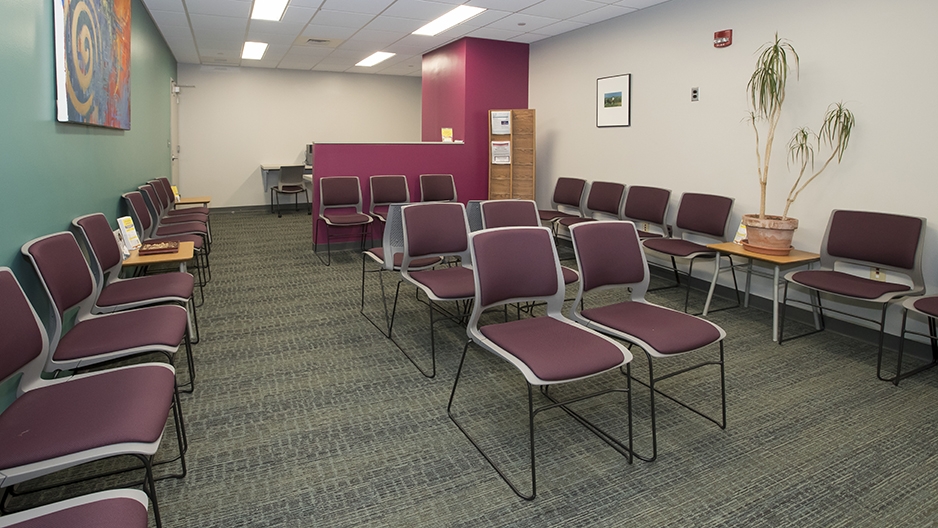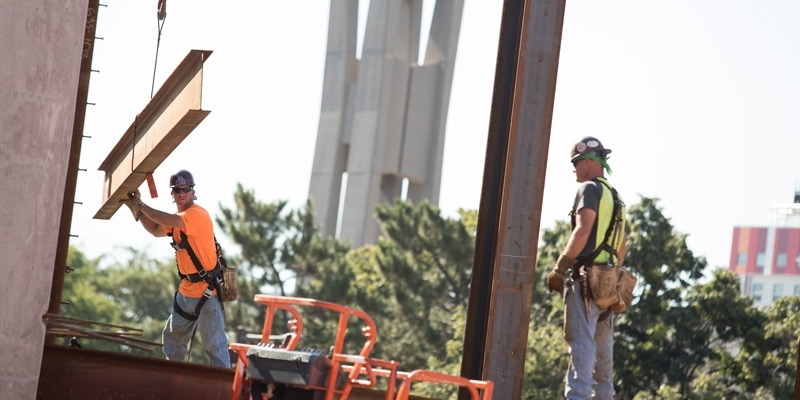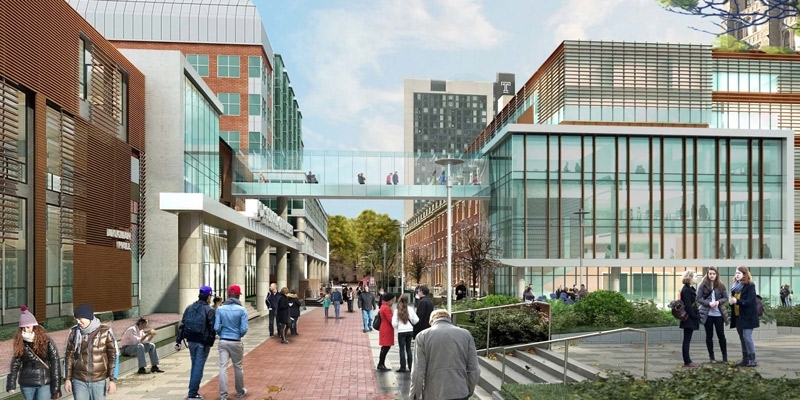New space, new services, for Tuttleman Counseling
Tuttleman’s move to 1700 N. Broad St. will allow the center to better accommodate its growing clientele.

When Tuttleman Counseling Services finished moving its headquarters last week, the transition represented more than an address change: It doubled Tuttleman’s space, ushering in a new chapter for a center in-demand.
“This is big enough for us to be comfortable and immediately offer new services,” Tuttleman Director John L. DiMino said in his new office on the second floor of 1700 N. Broad St., near Cecil B. Moore Avenue. “And also to grow.”
Tuttleman, previously located in 1810 Liacouras Walk, is already making use of its new breathing room. The new center is now able to host drop-in group sessions, held at least twice daily during the week; hire three additional professionals (a psychiatrist as well as two psychologists to serve as a group coordinator and group assistant coordinator); and debut its Resiliency Resource Center—formerly the Self-Help Center—a space equipped with a range of therapeutic tools.
Among other new features are four gender-neutral bathrooms; classroom-esque spaces for group sessions focused on skill-building, such as stress management; and a spacious conference room that can also be used for in-service training and group sessions.
The numbers underscore the need.
Since the 1999-2000 academic year, the total number of students accessing Tuttleman services annually has more than tripled, from 1,002 to 3,564—a fact that mirrors national trends, DiMino said.
A confluence of factors is likely to credit.
“There’s less stigma around mental health issues,” DiMino offered. In addition, he said, advances in psychotropic medications have permitted more students to attend college, and uninsured and underinsured students in need of such services are likely to use them on campus.
Counseling professionals are hoping Tuttleman’s new offerings, especially the drop-in group sessions, will help to more efficiently serve student-clients with issues that aren’t urgent, rather than having them wait for traditional counseling sessions.
The Resiliency Resource Center—for years an initiative that lacked a dedicated space—will offer helpful books, bright-light therapy to treat seasonal affective disorder and cranial electrotherapy stimulation, a technique that uses very low voltage electric currents to decrease depression and anxiety, and improve sleep.
DiMino has an eye toward the future, too. There could be a space reserved for mindfulness meditation or yoga, he suggested. The use of therapy animals might be explored.
“We want to make a very good service even better,” he said.


